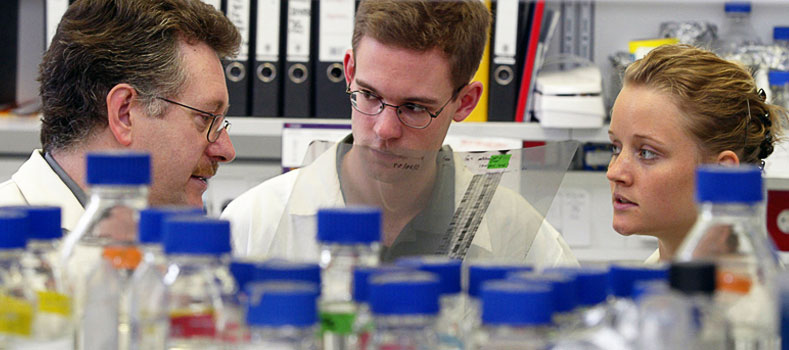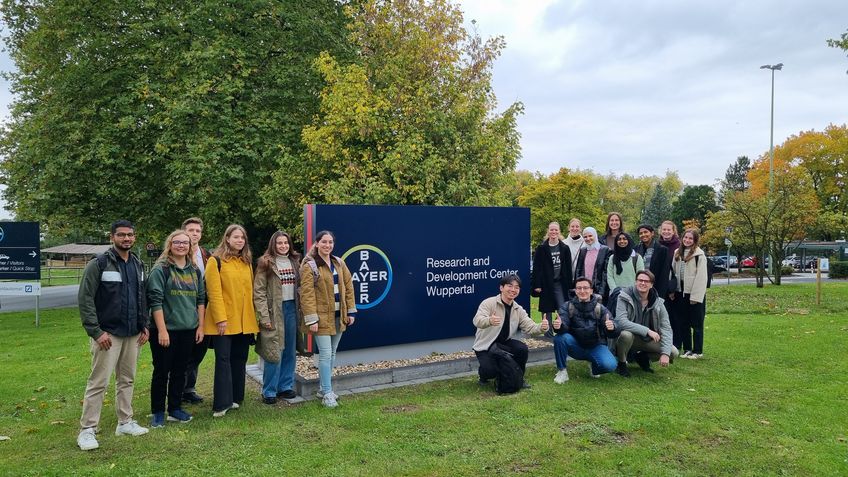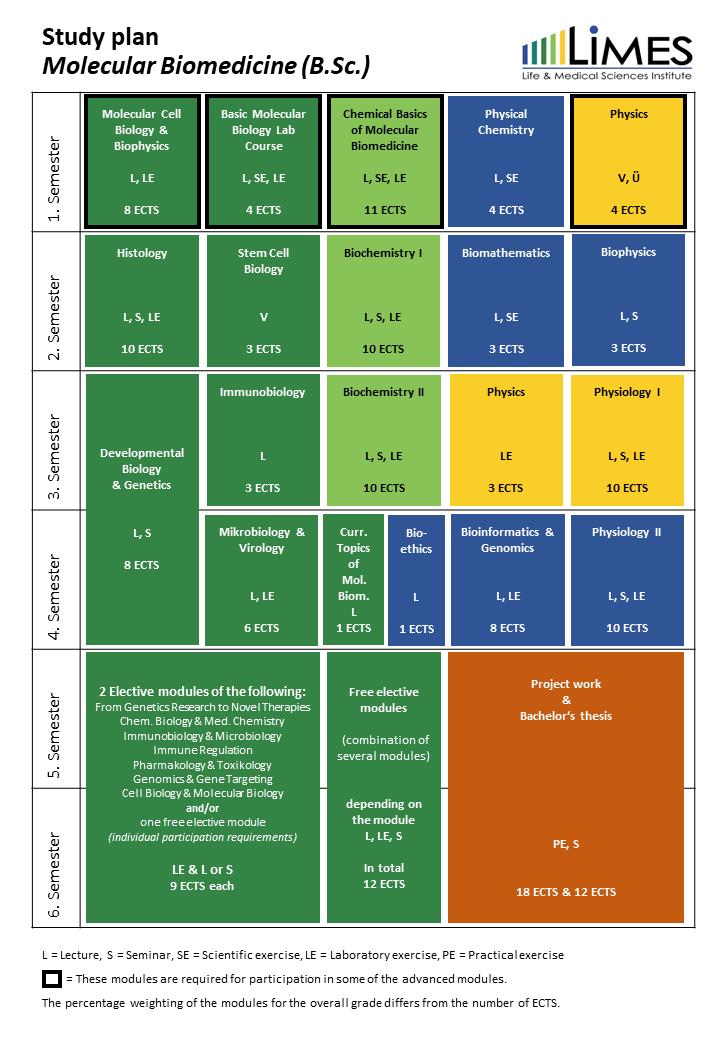Curriculum
The study program Molecular Biomedicine is co-organized by the Faculty of Mathematics and Natural Sciences and the Faculty of Medicine. It focuses on the molecular and cell-biological fundamentals of life and their pathological changes. The qualification opens up a broad range of career opportunities in research, development, diagnostics and therapy.
For this, it is necessary that specialist disciplines from the natural sciences such as biology and chemistry are systematically combined with medical study contents. This is reflected by the structure of the bachelor's program. In the first four semesters, natural sciences (biology, chemistry, physics) and basic medical subjects (anatomy, physiology, biochemistry) are taught. The goal is that students acquire interdisciplinary professional competence in the basic subjects mentioned above, in order to analyze, work on and develop further biomedical questions.
In the 5th and 6th semesters, an intensification phase with compulsory optional subjects is introduced, which is intended to provide students with essential key qualifications and competences in biomedical research. A special focus is the choice of a Bachelor's thesis in one sub-area of biomedicine (for example immunology, cell biology, molecular pathology, genetics). Students are trained in current biochemical, molecular and cell-biological methods of analysis in biomedical research and they learn to work on a scientific project. The practical and theoretical training forms the basis for a professional activity, for the master's / postgraduate program or other national and international Master's programs in the field of life sciences.
Module manual (according to examination regulations 2025)
All lectures that can be booked within the study program Molecular Biomedicine can be found in the electronic course catalogue (BASIS).












